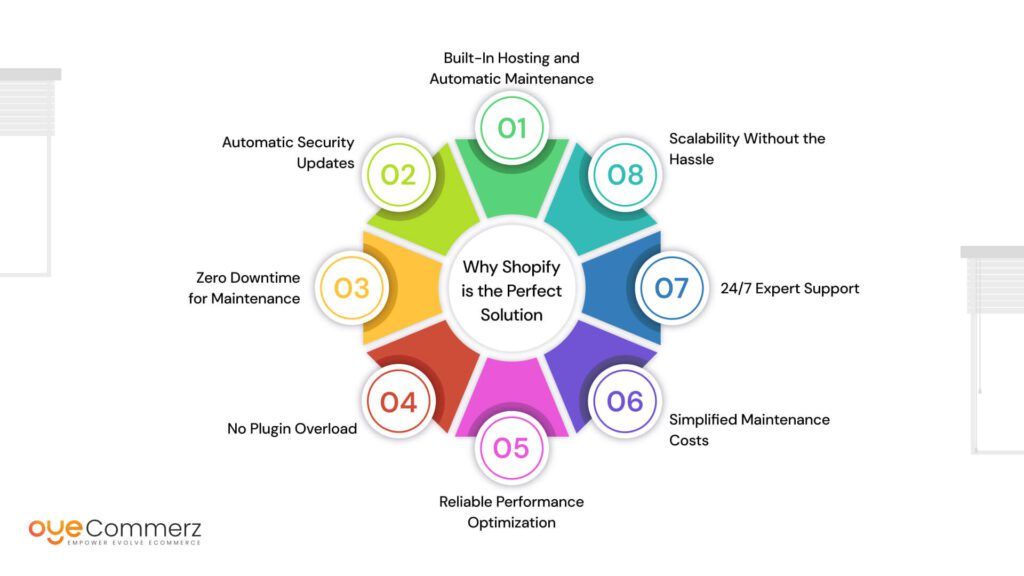In the ever-evolving world of eCommerce, choosing the best system is vital for your business's prosperity. If you’re currently using WordPress and thinking about a migration to Shopify, you’re not by yourself. Countless businesses are switching to leverage Shopify’s robust features, ease of use, and growth potential. This guide will guide you on the journey of migrating from WP to this platform smoothly, guaranteeing that you unlock your eCommerce potential.
Why Switch from WP to this platform?
Ahead of starting the migration process, it’s essential to understand why this shift can be beneficial for your digital storefront:
User-Friendly Interface: Shopify features an straightforward system that streamlines store handling, enabling for non-technical users.
Growth Potential: As your company expands, Shopify can accommodate increased traffic and sales without sacrificing efficiency.
All-in-One Solutions: Shopify provides pre-installed resources for search engine optimization, analytics, payment handling, and more, reducing the need for numerous plugins.
Advanced Safeguards: With Shopify, you get access to strong security measures that secure critical customer information.
Steps for a Effortless Migration
Migrating your eCommerce site from WP to Shopify requires multiple actions.
Here’s steps to facilitate a successful transition:
Plan Your Migration Plan
Begin by outlining your migration strategy. Decide on which elements of your existing site you want to move, such as:
Inventory information
User details
Purchase logs
Blog content
Select the Appropriate Migration Solution
Based on your needs, choose a migration package that aligns with your eCommerce goals. Professional services offers several options:
Basic Migration Package: Ideal for small stores with minimal products.
Mid-Tier Plan: Suitable for mid-range businesses with intermediate requirements.
Premium Migration Package: Best for high-volume stores demanding extensive customization.
Save Your Data
Ahead of starting the migration, make sure that you have a comprehensive backup Shopify migration process of your WP site. This task is essential in situations where anything goes awry during the move.
Retrieve Your Content from WP
Leverage plugins or custom scripts to extract critical information from your WordPress site:
Products
Customers
Orders
Blog posts
Import Content into Shopify
When you have your information retrieved, utilize Shopify’s migration apps or third-party apps to transfer your information into your Shopify store. Confirm that all content is accurately structured and placed.
Customize Your Shopify Site
After migrating information, adjust your Shopify platform’s layout to match with your business goals. Look into working with a designer if you need detailed customization.
Establish Checkout Systems and Shipping Options
Set up payment gateways and shipping settings in Shopify to create a smooth checkout experience for customers.
Apply Search Engine Optimization Best Practices
To keep your search engine rankings during the change:
Implement 301 redirects from existing URLs to migrated ones.
Update meta tags.
Enhance media and text for SEO.
Evaluate Your New Shop
Prior to launching, extensively check your benefits of using Shopify for eCommerce new site. Look out for any errors, checkout failures, or incomplete files.
Publish Your Store
Once everything is in place, it’s time to go live! Announce the transition to your clients and invite them to discover the enhanced features of your Shopify store.
Post-Migration Assistance
Even after launching your Shopify store, continued help is important. Explore working with service providers who can help with:
Site maintenance
Promotional campaigns
Performance optimization
Conclusion
Migrating from WP to this platform can be a game-changing step for your digital business. By adopting this guide and working with professional services like those offered by dedicated providers, you can ensure a smooth transition that boosts your digital storefront. Embrace the shift and realize the full capabilities of Shopify today!
